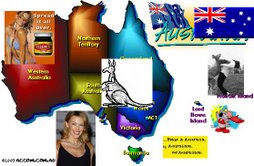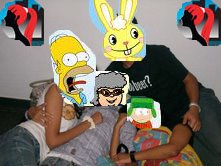2A)
1 - What is the weight of the largest pumpkin?
The largest pumpkin ever grown weighs a massive 1,502 pounds. It was weighed in on October 7th 2006 and was grown in Greene, Rhode Island by Ron Wallace. It beat the previous record of 2005 which was 1,469 pounds.
http://www.pumpkinnook.com/giants/record.htm2 - What is the best way (quickest, most reliable) to contact Grant Hackett?
Grant Hackett can be contacted at the
Miami Swimming Club, their address is:Miami Swimming Club PO BOX 2461BURLEIGH QLD 4220
http://granthackettonline.free.fr/?page_id=1073 - What is the length of a giraffe's tongue?It can be as long as 22 inches in length, but is usually between 18 - 20 inches(46-50 centimeters)
http://www.sandiegozoo.org/animalbytes/t-giraffe.html4 - How would you define the word "ontology"? What does it really mean?
Ontology is the most fundamental branch of metaphysics. An ontology is a specification of a conceptualization. in philosophy it refers to the subject of existence.
http://www-ksl.stanford.edu/kst/what-is-an-ontology.html5. What was David Cronenberg's first feature film?
"Shivers" in 1975 was the first feature film directorial debut of David "deprave" Cronenberg, the king of veneral horror.
http://www.scoopy.com/shivers.htm6. When was the original "Hacker's Manifesto" written?
It was written on January 8, 1986 by a hacker who went by the pseudonym of "the mentor" (born Loyd Blankenship). It was written after the author's arrest.
http://en.wikipedia.org/wiki/Hacker_Manifesto7. Why do all phone numbers in Hollywood films start with "555"?
It began 30 years ago when the use of exchange names as part of the telephone number was still popular in the USA. Dials had letters as well as numbers and the first 3 letters of the exchange name were dialled followed by numbers. An example might be CENtral 78978. You dialled CEN 78978 or, using all numbers, 236 78978. It so happened that 5 on the dial corresponded with J K and L and you can’t make any English place names using any combination of J, K and L as the first 3 letters. So the 555 code was allocated to service levels such as Directory Assistance, Operator, Repair Service, etc. Due to the "low fill" of the 555 code, Hollywood was encouraged to quote 555 numbers in their productions to prevent real subscribers being harassed by members of the public trying out the numbers quoted on the screen. Generic and satirical advertisements and commercials often used 555 numbers. In the early days of exchange names the prefix KLondike-5 was used as this exchange did not exist.
http://www.omegarobot.com/article/555.html8. What is the cheapest form of travel from Crete to Rhodes?
Ferries are the primary form of travel between the islands, the trip is overnight and costs about 120 euros.
http://www.athensguide.com/ferries.html9. What song was top of the Australian Pop Charts this week in 1965?
"I’ll never find another you" by The Seekers topped the charts this week and the next two consecutive weeks in 1965.
http://www.onmc.iinet.net.au/topspot/1965.htm10. Which Brisbane band was (still is?) Stephen Stockwell a member of?
Stephen Stockwell was and is the vocalist and keyboard player of the Black Assassins.
http://www.brisbanewritersfestival.com.au/2005/content/standard.asp?name=StockwellS2B)
What is a search engine?
wikipedia describes a search engine as an information retreival system designed to help find information stored on a computer system, such as on the world wide web, inside a corporate or proprietary network, or in a PC. The search engine allows one to ask for content meeting specific criteria (typically those containing a given word or phrase) and retrieves a list of items that match those criteria. This list is often sorted with respect to some measure of relevance of the results. Search engines use regularly updated indexes to operate quickly and efficiently.
Without further qualification, search engine usually refers to a Web search engine, which searches for information on the public Web. Other kinds of search engine are enterprise search engines, which search on intranet, personal search engines, and mobile search engines. Different selection and relevance criteria may apply in different environments, or for different uses.
Some search engines also mine data available in newsgroups, databases, or open directories. Unlike Web directories, which are maintained by human editors, search engines operate algorithmically or are a mixture of algorthmic and human input.
How do search engines rank the stuff they find on the internet? who, or what, makes one page (that you might get in your search results) more useful than another one, so that it is put at the top of your search results?
search engines sort through the millions of pages it knows about and will present you with ones that match your topic or keywords. The matches will even be ranked, so that the most relevant ones come first.
Of course, the search engines don't always get it right.
So, how do crawler-based search engines go about determining relevancy, when confronted with hundreds of millions of web pages to sort through? They follow a set of rules, known as an algorithm. Exactly how a particular search engine's algorithm works is a closely-kept trade secret. However, all major search engines follow the general rules below.
Location and Frequency
One of the the main rules in a ranking algorithm involves the location and frequency of keywords on a web page. Call it the location/frequency method, for short.
Search engines will also check to see if the search keywords appear near the top of a web page, such as in the headline or in the first few paragraphs of text.
Frequency is the other major factor in how search engines determine relevancy. A search engine will analyze how often keywords appear in relation to other words in a web page. Those with a higher frequency are often deemed more relevant than other web pages.
search engines add spice to the location/frequency method. Nobody does it exactly the same, which is one reason why the same search on different search engines produces different results.
To begin with, some search engines index more web pages than others. Some search engines also index web pages more often than others. The result is that no search engine has the exact same collection of web pages to search through. That naturally produces differences, when comparing their results.
Search engines may also penalize pages or exclude them from the index, if they detect search engine "spamming." An example is when a word is repeated hundreds of times on a page, to increase the frequency and propel the page higher in the listings. Crawler-based search engines have plenty of experience now with webmasters who constantly rewrite their web pages in an attempt to gain better rankings. Some sophisticated webmasters may even go to great lengths to "reverse engineer" the location/frequency systems used by a particular search engine. Because of this, all major search engines now also make use of "off the page" ranking criteria.
Off the page factors are those that a webmasters cannot easily influence. Chief among these is link analysis. By analyzing how pages link to each other, a search engine can both determine what a page is about and whether that page is deemed to be "important" and thus deserving of a ranking boost. In addition, sophisticated techniques are used to screen out attempts by webmasters to build "artificial" links designed to boost their rankings.
what are some of your favourite search engines? why do you like one more than others?
I, personally, use mostly google but before google became all-famous I used to use yahoo and askjeeves. I have also used altavista but google remains my favourite as it is easy, clear and clearly states the the time taken to find the results and also the number of results found.
Can you find some current news stories about search engines? (for example, Google has been in the technology news a bit lately).
http://searchenginewatch.com/showPage.html?page=3309841#bestsearch












